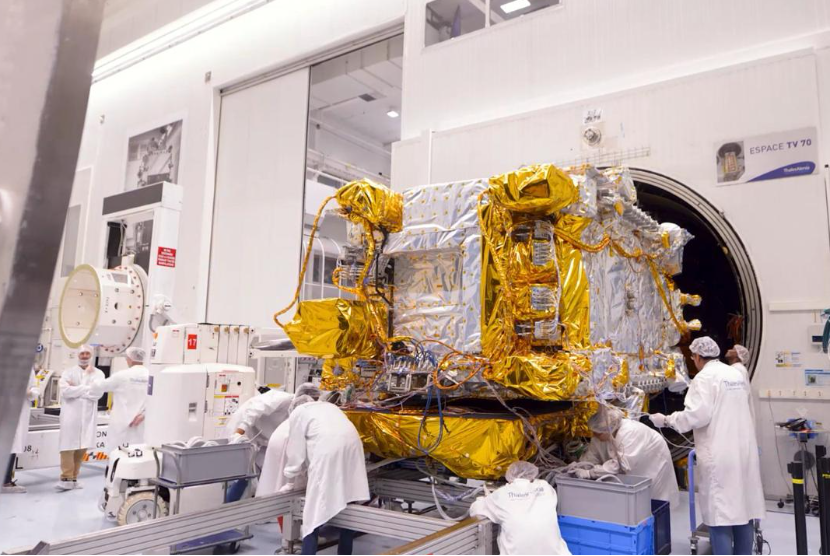REPUBLIKA.CO.ID, JAKARTA -- In line with the company's commitment to bring equalization of access to information through reliable digital telecommunications infrastructure and services, PT Telkom Indonesia (Persero) Tbk (Telkom) through its subsidiary Telkomsat will launch satellites with High Throughput Satellite (HTS) technology on February 20, 2024 Florida time or February 21, 2024 Indonesia time. The satellite, which will be Telkom's 11th satellite, will later occupy an orbital slot of 113 degrees East Longitude (113 BT).
Telkom President Director Ririek Adriansyah said that the satellite, named Red White 2, will be launched directly from Cape Canaveral, Florida using a Falcon 9 rocket. Currently the Red White Satellite 2 is already in Cape Canaveral and is ready for launch in the near future. With a capacity of up to 32Gbps, Satelit Merah Putih 2 carries an active transponder consisting of C-band and Ku-band frequencies, which will reach all areas of Indonesia.
Previously Telkom had launched the Red White Satellite in 2018 with placement on the 108 BT orbit slot. “The Merah Putih 2 satellite is a hope and a manifestation of Telkom's commitment to support the equalization of connectivity throughout Indonesia, complementing our land and sea infrastructure. Telkom believes that this equalization of access to information is expected to accelerate the digitalization of society in various aspects,” Ririek said in a press release on Thursday (15/2/2024). PT Telkom Indonesia (Persero) Tbk (Telkom) through its subsidiary Telkomsat will launch satellites with High Throughput Satellite (HTS) technology. - (Telkom Group).
Furthermore, Telkomsat President Director Lukman Hakim Abd Rauf said the Red White Satellite 2 relied on the Spacebus 4000B2 platform with a design age of 15 years. Its own construction involved Thales Alenia Space which was responsible for manufacturing satellite manufacturing and SpaceX as a satellite launch service provider company. Both companies are big players in their sector and are already experienced with Telkom's previous satellite projects.
“The process of selecting partners and procuring the satellite has been carried out in accordance with the principles of compliance and the principles of good corporate governance. In addition to the business aspect, the partner selection process has also taken into account the lowest cost per Gbps so as to produce satellites with greater capacity at competitive selling prices,” Lukman said.
Although Red White Satellite 2 has not yet been launched, the potential for backhaul business to which this satellite is targeted is projected to be very positive. This can be seen from the enthusiasm of potential corporate customers as well as VSAT operators who want to use the satellite service.
Of course, this is an opportunity for Telkom, in particular Telkomsat to strengthen its satellite business portfolio. “Not only bringing the mission to the nation's connectivity and bringing Indonesia's good name, hopefully the presence of Red White Satellite 2 can strengthen Telkomsat and TelkomGroup to become a major player in the satellite industry in Indonesia,” Ririek said.


